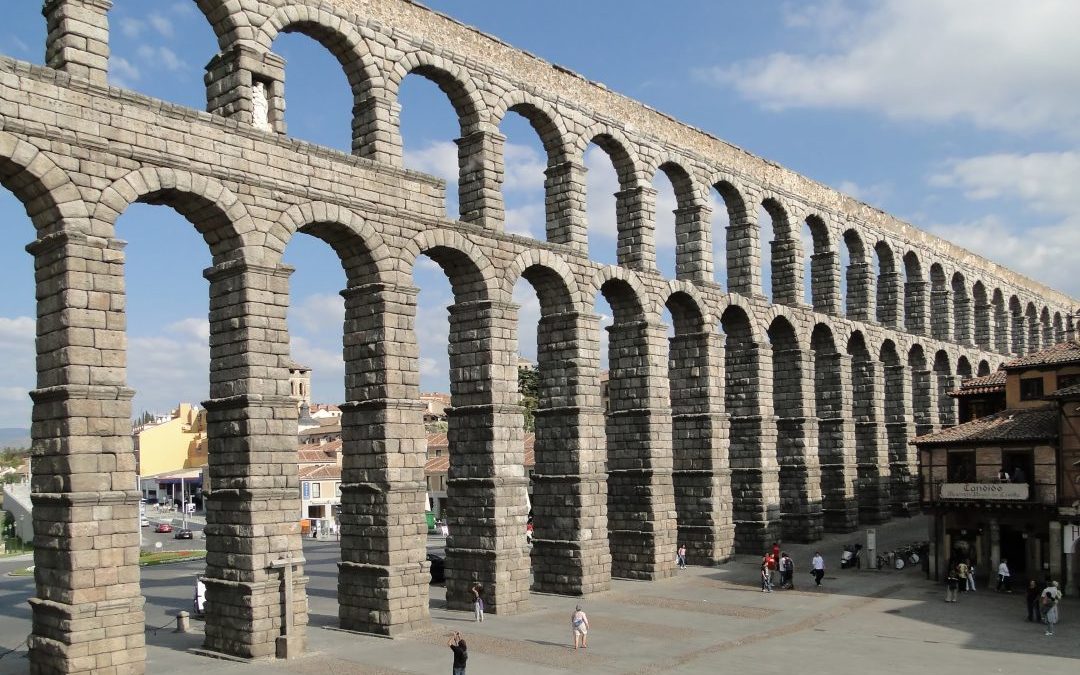Rome’s Plumbing Issues:
Did you know that the mass system of underground pipes that run into just about every building, home, and establishment in the U.S. was once considered a sign of prosperity? Though they weren’t the first to have plumbing, the ancient Romans excelled in their intricate pipe systems that brought running water into homes, bath houses, and the popular town squares with their fountains. It took years to build the aqueducts and underground pipes that archeologists are still finding today. But more importantly, it took money. In war times and poor times, funds were lacking to repair many cities’ infrastructures including the plumbing and aqueducts, so there was a lack of societal progress. Recent discoveries have allowed us to understand this better through the Romans’ use of lead pipes.
During their wealthier periods when new pipes were installed and old ones replaced, large lead particles would float through the water and eventually come out into the Tiber River. This water would soak the surrounding areas leaving large residues of lead. However, in poorer times, pipes were not kept up to date or replaced so the pipes began to be worn down. This resulted in a less visible presence of lead in the surrounding soil due to the lack of large particles from the new pipes. Wealthier times: updated plumbing and more lead residue. Poorer times: dilapidated or non-existent plumbing and less lead residue. See, the use of these lead pipes for underground plumbing has allowed archeologists to determine the rich and poor periods of Rome’s amazing history by examining the lead in certain layers of ground. Who would have thought that plumbing would play such a large role in archeology 2,000 years later?!
APEX’s Solution:
APEX Plumbing is a company who understands the importance of underground plumbing and the importance of using the right pipes as we have been specializing in sewer line repairs and water line replacements for over 30 years. Unfortunately, lead pipes were used in houses up into the latter part of the 20th century (c. 1975) so lead residue is still a problem in many Denver homes today. Over time, the pipes have become worn so there is less residue like in Rome’s poor times, but it is still a major health concern. Some contend that Rome’s use of lead water lines caused lead poisoning in many of its aristocracy and now we know that the lead stuck around in the soil for two millennia. Just imagine the negative impacts drinking water from a lead water line might have on you and your family’s health. If your water is flowing through lead pipes into your home, contact APEX today for a free estimate on replacing them with a safer and more reliable material, copper. Wondering if your line is made of lead? Denver Water has you covered. To learn more about the harmful effects of lead, click here.



